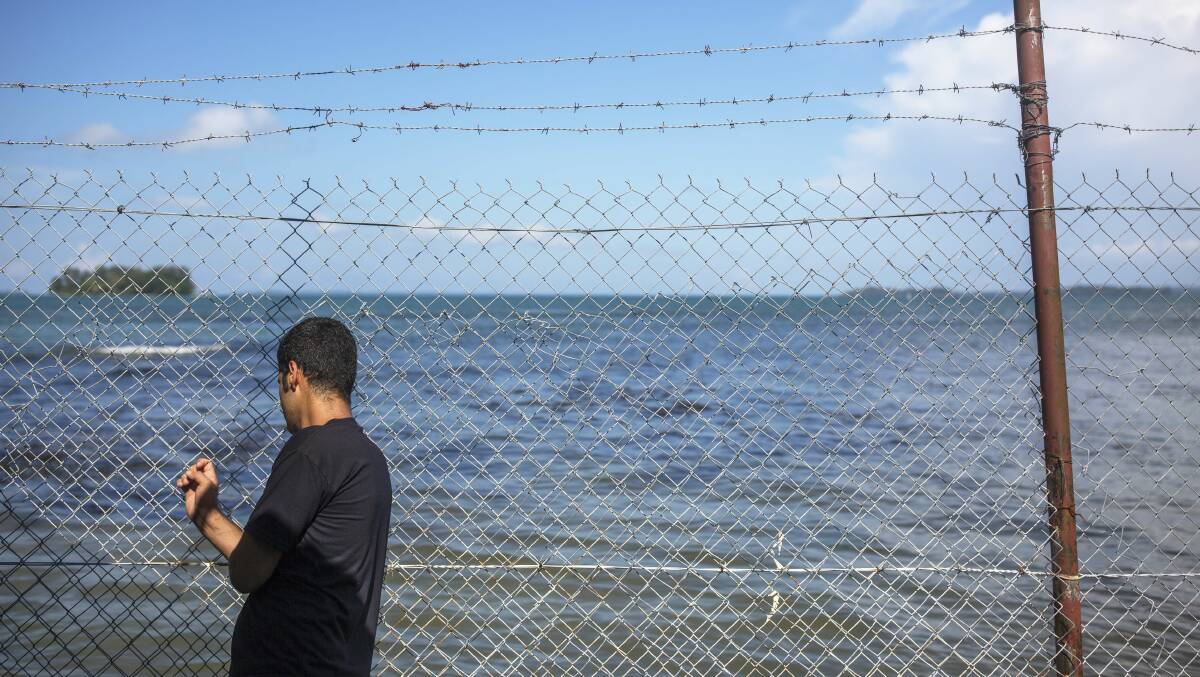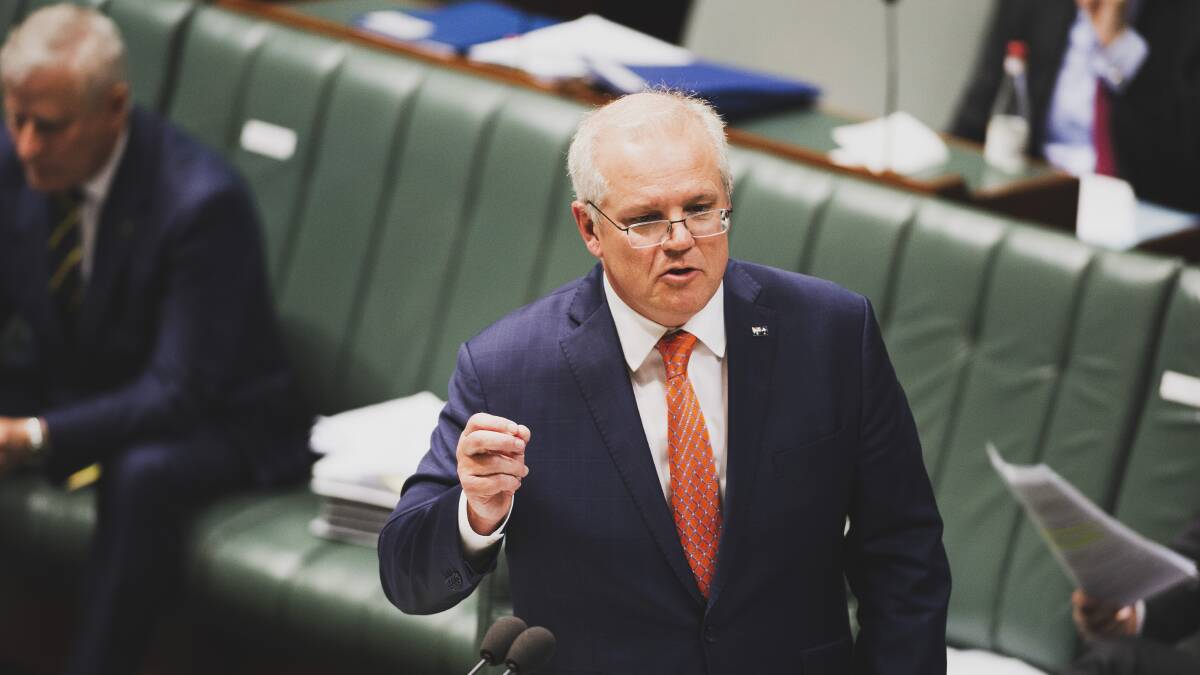
Spending billions of dollars on national defence is useless if we are defending a burnt continent.
- Janet Reynolds, Greenleigh
John Quiggin is one of Australia's finest economists whom I have admired for a long time. His article ("Can't we just keep families together?", December 31, p26), however, exposed that divide between economist and ecologists that he has sometimes bridged, but not on this occasion. Quiggin looks at immigration with his economist blinkers on but fails to see the overarching issue of population, and how many people this nation can sustainably support.
Subscribe now for unlimited access.
or signup to continue reading
Of course, the COVID-19 pandemic complicates things, closing borders that might otherwise be open. Nevertheless, immigration policy must be set in the context of a broader population policy. Quiggin is simply wrong to assert that the "number of people that actually want to migrate for personal and family reasons is limited". The number of people on the spouse waiting list is in the tens of thousands. And no doubt a lot of the 26 million refugees in the world and 79.5 million "forcibly displaced" would like to come here to have a better life.
This is not an argument to keep our borders closed once the pandemic has passed. Any nation, however, has a responsibility to control its borders, not only to protect its existing citizens from excessive competition in the labour market, but also to protect the habitat of other species from being destroyed for urban expansion, a corollary of rapid population growth. Most of us who support controlled borders are neither xenophobes nor racists, rather, citizens who see the social and environmental downsides of the kind of rapid population growth that has characterised Australia since John Howard's government.
Immigration is a mere subset of population - the other half is natural increase that can be affected by such social policies as baby bonuses, for instance.
It is thus a pity that, in the recently announced Morrison government, there is no minister for population. Alex Hawke is Minister for Immigration, Citizenship, Migrant Services and Multicultural Affairs, but not population. And he's in the outer ministry, so has less influence. Anne Ruston, on the other hand, is Minister for Families and Social Service - a portfolio that may affect population policy - and is in the ministry itself.
Let's hope that ministers Hawke and Ruston talk to each other.
Jenny Goldie, Cooma
Scrap the Jack
Now that words have been changed in the Australian National Anthem, not before time may I say. Is it not time to remove that symbol of horror, the Union Jack from the Australian flag. The Union Jack was bad karma for what ever country the former British Empire invaded. It was a symbol for pillage, murder, racism, and any other crime you can think of. It was not called the butchers apron for no reason. The original inhabitants of this continent are still trying to get over the horrors of this sad history.
Richard Ryan, Summerland Point, NSW
Welcome change, for now
The Prime Minister has no doubt acted in good conscience in regard to seeking to modestly amend Advance Australia Fair, so as to acknowledge both our recent timeframe of federation and also our long-established Indigenous heritage.

It does, however, need to be acknowledged that it will be next to impossible to refine our national anthem to such a point that it satisfies the whims of every citizen, critic and commentator.
While most Australians would be comfortable singing "For we are one and free", the problem with making any subsequent changes is that it undermines the fact that the anthem's current affirmation of us being a free nation below the numinous Southern Cross with boundless plains to share, actually beautifully encapsulates what Aboriginal academic Noel Pearson recently called in his Declaration of Australia the three strands of our grand narrative: an Indigenous foundation, British institutions and a modern-day multicultural character.
Rightly or wrongly, there are genuine fears that further capitulation to those with the loudest voices will inevitably turbocharge the grievance industry and perpetuate the us and them mentality, with which aggrieved activists so dearly love to bash mainstream citizens around the head on January 26 each year.
No doubt, once the anthem change has been accepted and approved, it will only be a matter of time before there are further demands to revise the national flag or perhaps edit our citizenship pledge. After such a civilly disorientating year as 2020, we now need to strengthen the sinews of our societal unity, not let them go slack into a renewed tribalism.
Peter Waterhouse, Craigieburn, Vic
Drug chat a good start
It gives many of us real hope that a wave of open mindedness is moving the ACT towards drug decriminalisation. Ian Douglas (Letters, December 23) admits to being sceptical but scepticism when twinned with preparedness to follow the evidence makes me proud to be a member of this community.
Ian Douglas worries that decriminalisation will lead to the development of a larger black market. To allay this concern he might consider that more than halving the number of consumer arrests in the ACT in 2019 did not boost drug use in the territory ("ACT drug arrests one- fifth nation rate", The Canberra Times, November 15, p6).
Indeed, wastewater analysis shows the ACT level of use of heroin and methylamphetamine to be below that of the national average. This is consistent with the longstanding comprehensive decriminalisation undertaken in Portugal where the prevalence of methylamphetamine use and injection of heroin is the lowest in Europe.
The open-minded attitude of ACT police as well as the territory's political leadership holds out the prospect that hitherto intractable social issues can be addressed.
On August 20 all political parties joined in calling for consideration of the feasibility of the extension of the simple offence notices and the Chief Police Officer has recognised that "in many cases people we interact with could be better supported by another service".
Bill Bush, Turner
What is there to defend?
I totally support Kate Nockels (Letters, December 31). Spending billions of dollars on national defence is useless if we are defending a burnt continent.
A friend claimed that Scott Morrison was last elected on his pledge to create jobs and more jobs. My response was there wasn't much point in this promise if the earth was scorched. Then there was COVID-19 which has demonstrated we need to make friends world-wide to beat this virus and not enemies.
Janet Reynolds, Greenleigh
Time for a lockdown
The delayed need to lock down Greater Sydney is evident now that the virus appears to be spreading. The NSW government's dilly-dallying over Christmas is putting more lives at risk.
It is not just Sydneysiders travelling out, those who visit Sydney must be stopped from doing so to stop the risk of bringing the virus back to other cities and regional areas.
The Premier has to stop trying to be everybody's friend and make the right call just as Premier Andrews did for Melbourne.
John Panneman, Jerrabomberra
Lazy propaganda
Of course War Memorial curator Nick Fletcher would claim that an F-111 which flew over Timor in 1999 is "significant" historically ("The Australian War Memorial's hidden machinery of battle", December 29, p5). But it isn't; not to anyone who's not paid to look after this sort of stuff.
The intelligence reports based on its flights might be historically significant (we'll have to wait for Craig Stockings's official history to tell). But the reports are on paper in National Archives and cost a few cents a year to preserve. Whether the machine that enabled the reports to be made is worth the thousands of dollars it would cost to maintain and display is a question that the Morrison government has fudged and dodged.
Whether any of the machines that the War Memorial claims are important enough to justify a half-a-billion-dollar expansion at a time of health, social and climate crisis - and relative poverty among other national cultural institutions - should be a matter of public debate. It should not be an occasion for more lazy War Memorial propaganda on a slow news day.
Prof. Peter Stanley, Dickson
A testing experience
My wife and I would like to record our admiration and gratitude for the unsung heroes working day and night on COVID tests in pathology labs. Late morning on Christmas Eve she had to undergo a test at the local station. We were fairly confident of a negative result but knew we had to remain isolated till we had it. The possibility of not having it for Christmas Day loomed large in our minds. Imagine our relief on waking in the morning to find the clearance text had been lodged on my mobile by ACT Pathology at 2.00am, thus enabling us to spend the day with our family. We think these people do a marvellous job.
G Franklin, Kambah
Another year over
The imminent arrival of the new year reminds me of the John Lennon song that begins "So this is Christmas, And what have you done?"
Thanks to our peerless firefighters and their leaders, we Australians have survived the terror of the catastrophic Black Summer bushfires. Thanks largely to our medical experts, we and our country's economy have fared remarkably well, compared to almost all other nations, in the battle against the coronavirus. And we have survived flooding rains.
There is one more major battle yet to be won. Our national leaders have failed to take the fight up to the greatest threat confronting us: global heating and its creation, climate change. Our new year's resolution should be to convince the federal government of the dire need for climate action, and to ensure that it acts.

